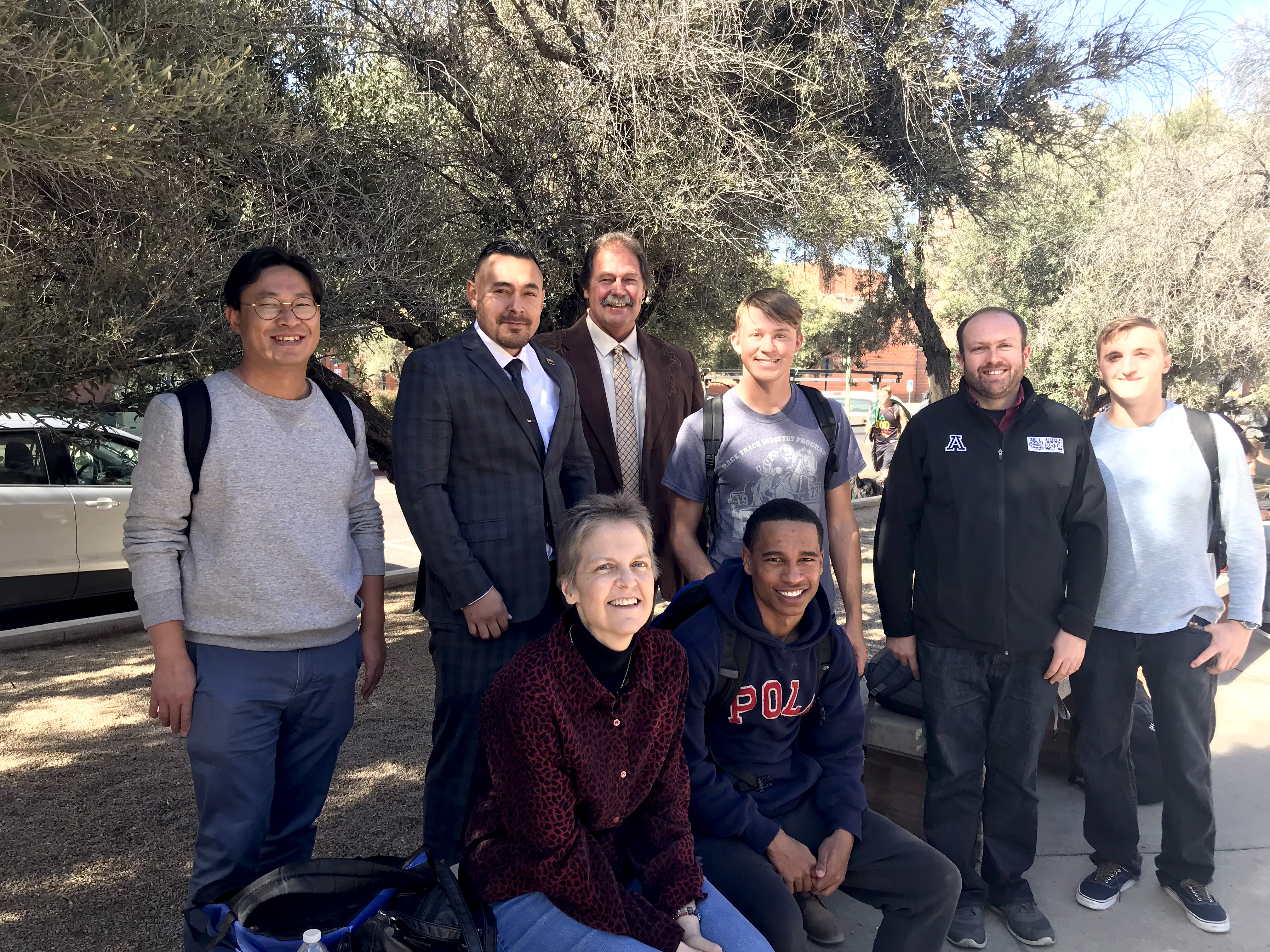Don Ahrens and Juan Estrada Talk Racing Investigations
On Wednesday January 30, students in the Race Track Industry Program had the pleasure of welcoming Don Ahrens and Juan Estrada. Mr. Ahrens is Director of Security for Sam Houston Park, and Mr. Estrada works as an investigator for the Arizona Gaming Commission. Ahrens spoke to students in the Joe Hirsch Speaker Series, and later, Estrada joined him in the Advanced Racing Law class.
A seasoned veteran in the racing industry, Don Ahrens has worked at 39 tracks in his 37 years in the business. In the Joe Hirsch Speaker Series, he explored the many facets of racing investigations. The role of an investigator is simple: conduct unbiased investigations while maintaining integrity and responsibility to associations and the state. While the role of an investigator may be straightforward, the process is intricate, meticulous and detailed-oriented. Using an analogy, Mr. Ahrens likens the investigatory process to a cat and mouse game. Keeping score requires detailed documentation of every step taken leading up to a hearing. However, investigators face many challenges in the current racing climate. Ahrens concluded the session speaking to issues of funding, hiring practices, nepotism, and the “if it isn’t broken, don’t fix it” mentality as some of the major obstacles facing investigators today.
Ahrens collaborated with Mr. Estrada in Advanced Racing Law opening the discussion with the importance of knowing racing license descriptions, items to look for, and basic report writing. While these elements of an investigator’s duty are like a street officer’s, Ahrens and Estrada emphasized that racing investigations are a completely different ballgame. They highlighted that the investigatory process is never easy, but there exists a disparity between year-round and seasonal tracks. The contrast being that licensees have a network rooted in place when a meet runs throughout the year. This subtle detail can make all the difference during an investigation. After students got a feel for the investigatory process, they were given a chance to go through a case systematically, looking over a race fixing investigation from Penn National originating in 1999. Mr. Ahrens, who was a part of the investigation, noted that tote records were of vital importance in breaking the case. The takeaway for students is that an investigator must use every resource at their disposal.


